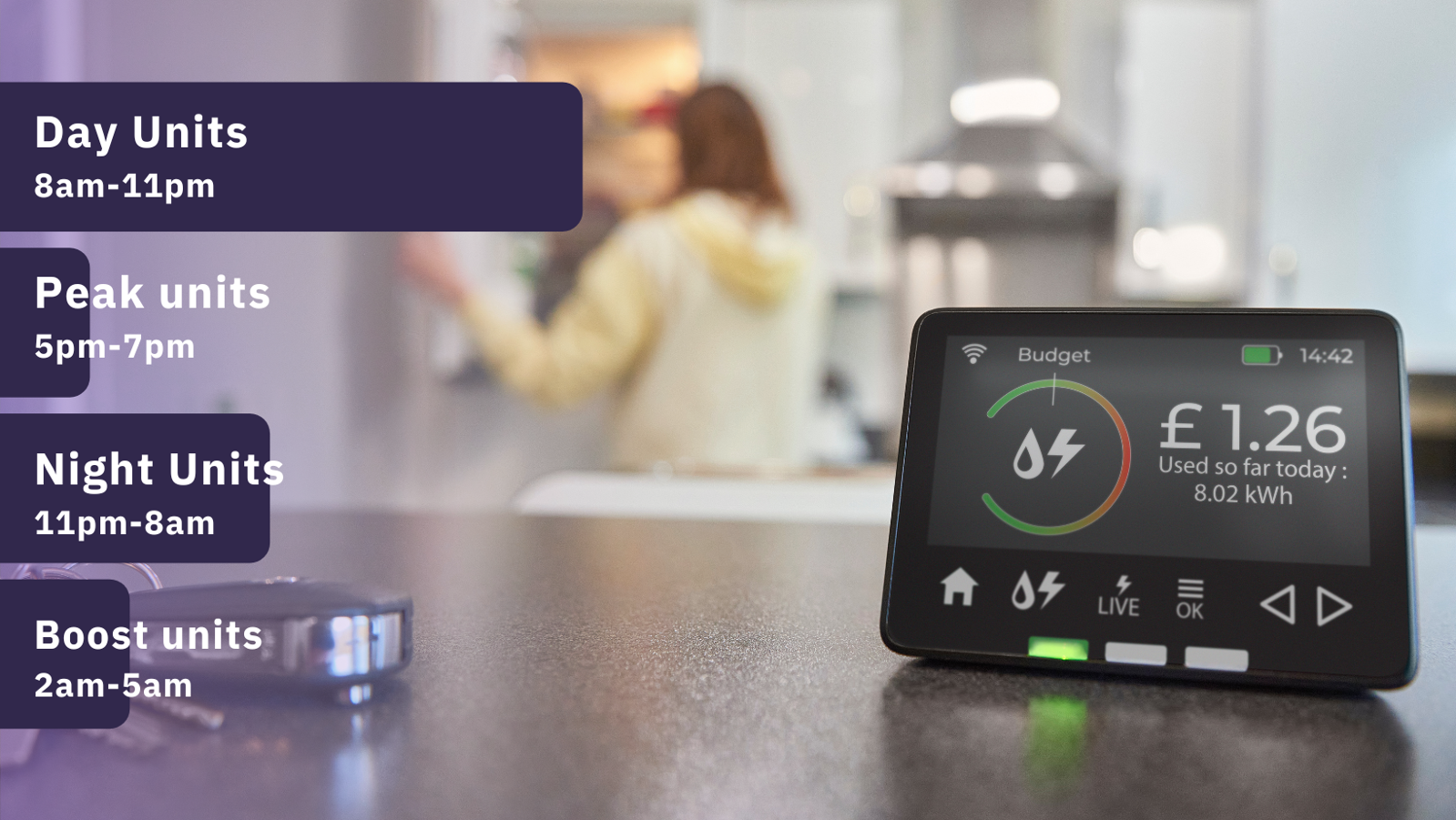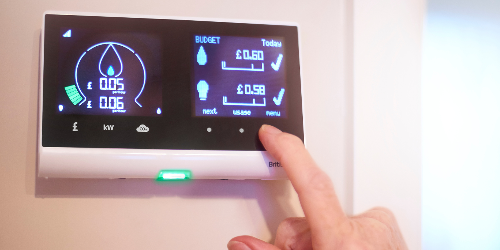- Tuesday 02 May 2023
What is a smart meter?
A smart meter is a new type of meter that measures the amount of electricity you use in real-time. Unlike traditional meters, smart meters are network connected and communicate with your energy provider remotely. This means that you no longer need to submit manual readings, and your energy provider can offer you more accurate bills based on your actual energy usage.
What is a smart meter tariff?
Smart tariffs charge different rates during different times of the day.
More complex than a singular 24-hour or a day-night rate, a typical smart meter tariff has four rates: a day rate, a peak rate, a night rate and an extremely cheap boost rate.
These rates encourage customers to use energy during off-peak hours when demand is lower, and energy is cheaper.
For example, if you use energy during peak hours (such as early evening), you will pay a higher rate than if you use energy during off-peak hours (such as early morning or late at night). The more expensive day and peak rates are offset by cheaper night rates; however, this means that smart tariffs aren’t for everyone.
The typical breakdown for the four smart tariff rates:

Here are some reasons someone might choose to go on a smart tariff:
- Electric vehicle, solar PV or heat pump ownership: EV, solar PV and heat pump owners are good candidates for smart tariffs because they can take advantage of cheap boost and night rates. Someone with an electric vehicle at home can set their home chargers to charge their car on ultra-cheap night rates. Similarly, solar panels and a solar battery means you could discharge your solar energy during the day and cheaply charge your solar battery during the night. With a heat pump, you could set your hot water schedule to come on at night.
- Shift Usage to Nighttime: Most new heavy-use appliances such as dishwashers and laundry machines can be set to go off during the night. If you do your dish and clothes washing at night or in the early morning, you may be a good candidate for a smart tariff.
Here are some reasons why someone might choose not to go on a smart tariff:
- Higher Rates During Peak Hours: While smart electricity tariffs can offer lower rates during off-peak hours, they can also come with higher rates during peak hours. If someone tends to use more electricity during day and peak hours, they may end up paying more overall than they would on a fixed-rate tariff.
- Complexity: Smart tariffs can be more complex than fixed-rate tariffs, requiring consumers to understand and manage their energy usage more carefully. Some consumers may find this too time-consuming or challenging to manage.
- Connectivity issues: If you live in an area with poor internet connection, your smart meter may not be able to accurately communicate your usage to your supplier on a timely basis.
- Heavy gas user: If your average gas usage is quite high you should be wary of signing up for a smart tariff as you might be able to save more on a standard tariff with a higher gas discount.
Where to Sign Up for a Smart Meter Tariff
If you own a smart meter and you think you’d be the perfect candidate for a smart tariff, you can quickly and easily view the cheapest smart meter tariffs here. Select your tariff and get signed up, and we’ll switch you to the best deal on the market – every year. WeSwitchU is the only switching platform in Ireland with both smart and non-smart tariffs available for selection.
Smart tariffs may not be suitable for everyone, especially those who are unable to shift their usage to cheaper nighttime rates. It is important for consumers to make an informed decision based on their energy usage habits and lifestyle. You can learn more about smart meters and tariffs at our FAQ here.
